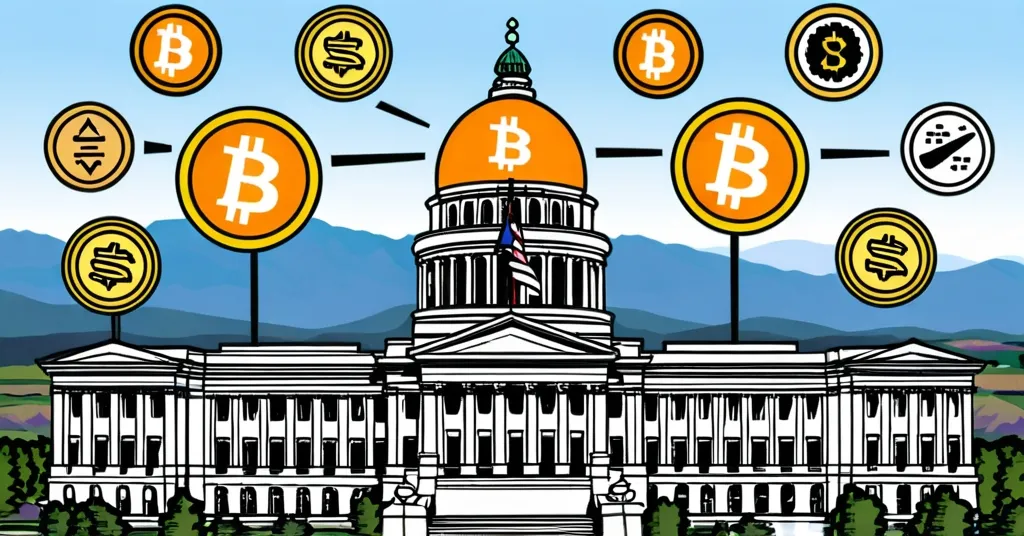Montana’s House Bill 429 Advances: State Eyes $50M Bitcoin Reserve

Montana Advances Bitcoin Reserve Bill, Joining a Growing State Trend
Montana is betting big on Bitcoin, joining a growing list of states ready to embrace digital assets as a new frontier for financial reserves. House Bill 429, which recently passed the House Business and Labor Committee with a 12-8 vote along party lines, could see the state investing up to $50 million in Bitcoin and other digital assets.
- Montana’s House Bill 429 advances
- Bitcoin as reserve asset
- Special revenue account proposed
- Other states follow suit
House Bill 429 proposes the creation of a special revenue account—a fund set aside for specific investments—earmarking up to $50 million for investments in digital assets, precious metals, and stablecoins. A special revenue account is essentially a dedicated fund used for targeted investment purposes, similar to how a state might set aside money for infrastructure projects or educational programs. Only Bitcoin currently meets the bill’s stringent criterion of having an average market cap, or the total value of all coins in circulation, exceeding $750 billion over the past year. If enacted on July 1, the state treasurer could allocate funds into this new reserve by July 15.
The move positions Montana alongside states like Utah, Arizona, and Oklahoma, which are also exploring the integration of cryptocurrencies into their financial reserves. Utah, in particular, is pushing forward with a Blockchain and Digital Innovation Amendment that proposes a 10% investment in Bitcoin. This initiative underscores a broader trend towards recognizing digital assets as legitimate components of state financial strategies. It’s not just about mountains and rivers in Montana anymore; they’re climbing the peaks of crypto adoption too.
An amendment to the bill removed the necessity for these funds to be managed by a qualified custodian or exchange-traded fund, sparking debates about security and management. Critics argue this could expose the state to unnecessary risks, while proponents see it as a way to maintain greater control over their investments. The volatility of digital assets like Bitcoin presents significant risks, and the regulatory landscape remains uncertain. Cybersecurity concerns also loom large, making it essential for states to tread carefully as they navigate this new financial frontier.
At the federal level, U.S. Senator Cynthia Lummis is pushing the BITCOIN Act, officially introduced on July 31, 2024, aiming to establish a strategic Bitcoin reserve. She describes this move as a “Louisiana Purchase moment” for the U.S., emphasizing its potential to secure America’s position as a leader in financial innovation and as a hedge against inflation and national debt. This federal initiative adds weight to the state-level efforts, suggesting a unified push towards integrating digital assets into traditional financial systems.
Investing in Bitcoin could potentially hedge against inflation or economic instability, but it’s not without its challenges. Experts suggest that while Bitcoin’s potential as a store of value is promising, its volatility could lead to significant fluctuations in the state’s financial reserves. A balanced approach is crucial, considering both the potential benefits and the inherent risks. The political divide, with all Republicans in favor and Democrats opposed to the bill, reflects the broader debate on the legitimacy and risks of digital assets.
As Montana and other states forge ahead, the crypto community watches with keen interest. This could be the beginning of a new era where digital assets are not just a speculative bubble but a fundamental part of state financial reserves. However, the journey is fraught with challenges, and only time will tell if these bold moves will pay off or if they’ll serve as cautionary tales for others to follow.
Key Questions and Takeaways
- What is House Bill 429 and what does it aim to achieve?
House Bill 429 is legislation in Montana that aims to allow the state to invest in Bitcoin and other digital assets as part of its reserve strategy, by creating a special revenue account.
- How did the vote go on House Bill 429 in Montana?
The bill passed with a 12-8 vote, with all Republicans supporting and all Democrats opposing it.
- Which digital asset currently meets the criteria set by House Bill 429?
Bitcoin is the only digital asset that currently meets the bill’s criterion of having an average market cap exceeding $750 billion over the past year.
- What is the potential financial allocation for the special revenue account if the bill is enacted?
The state treasurer could allocate up to $50 million into the fund by July 15, if the bill is enacted on July 1.
- Which other states are considering similar Bitcoin reserve bills?
Utah, Arizona, Oklahoma, Illinois, Texas, Ohio, and Pennsylvania are also exploring similar measures.
- Who is advocating for Bitcoin reserve legislation at the federal level?
U.S. Senator Cynthia Lummis is advocating for Bitcoin reserve legislation through the BITCOIN Act at the federal level.



